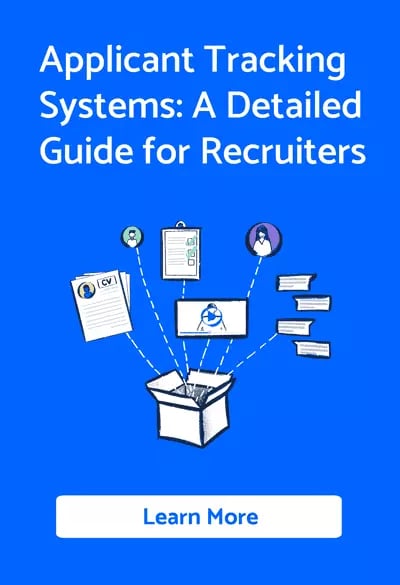In the dynamic world of recruitment, Small and Medium-sized Businesses (SMBs) are increasingly turning to technology to streamline their hiring processes.
Among the various technological innovations, video interviews have emerged as a particularly transformative tool.
In the quest for innovative recruitment strategies, Small and Medium-sized Businesses (SMBs) are increasingly embracing video interviewing, specifically the format where interviewers pose questions and candidates respond with recorded video answers.
This approach is radically transforming the hiring landscape, offering a unique blend of efficiency, flexibility, and depth in candidate assessment. Far from being a mere trend, this method has become a cornerstone in modern recruitment, particularly for SMBs.
Recent data underscores this shift. A LinkedIn Global Talent Trends report reveals that 76% of hiring managers believe video interviews will be the new norm.
This method is particularly appealing for SMBs, as it addresses several key challenges they face in talent acquisition. For instance, a survey by CareerBuilder found that 52% of hiring managers struggle with identifying the right candidates from a pool of applicants.
Video interviews provide a more in-depth first impression than traditional CVs or phone screenings, making them a valuable tool for SMBs.
Moreover, the cost-effectiveness of this method is a major draw for smaller businesses. According to a study by the Aberdeen Group, video interviews can reduce the cost of hiring by up to 50%, a significant saving for SMBs operating on tighter budgets. This approach aligns well with platforms like GoHire, which aim to provide efficient and affordable hiring solutions to SMBs.
This blog explores how pre-recorded video interviews are not just a fleeting response to contemporary challenges but a strategic tool that is reshaping the recruitment process for SMBs.
Streamlining the Screening Process
Pre-recorded video interviews streamline the initial screening process, saving valuable time and resources. Instead of coordinating schedules for live interviews, hiring managers can review recorded responses at their convenience.
This flexibility is crucial for SMBs, where resource allocation needs to be efficient. It also allows for a quicker shortlisting process, enabling SMBs to respond to market needs with agility.
Breaking Down Geographical Barriers
Video interviews where candidates record their responses are especially effective in extending the reach of SMBs beyond their immediate locale. Traditional hiring processes often limit the candidate pool to those who can physically attend interviews.
However, with pre-recorded video responses, businesses can attract talent from across the globe. This global reach is vital for SMBs seeking specialized skills, which may be scarce in their local market.
Enhancing Candidate Assessment
This format of video interviewing allows for a more nuanced evaluation of candidates. Unlike written applications or CVs, video responses provide insights into a candidate's communication skills, personality, and professionalism. This depth of assessment is particularly beneficial for roles where soft skills and cultural fit are as important as technical qualifications.
Creating a More Inclusive Hiring Process
Video interviews can contribute to a more inclusive hiring process. Candidates who may face barriers in attending in-person interviews due to geographical, physical, or scheduling constraints can easily participate. This inclusivity is aligned with the growing emphasis on diversity and equality in the workplace.
Tips for SMBs
By following these best practices, SMBs can make the most out of pre-recorded video interviews. This approach not only streamlines the initial stages of the hiring process but also provides a fair and consistent platform for candidates to showcase their skills and personality.
- Reliable Recording Software: Ensure the use of reliable software or platforms for recording and uploading the video. This could be a feature of a broader applicant tracking system or a standalone video recording tool.
- Test Recording: Encourage candidates to make a test recording to check for any technical issues with the video or audio.
- Understanding the Format: Candidates should be given clear instructions on how the pre-recorded interview will work, including the number of questions, the length of responses, and any deadlines for submission.
- Clear Instructions for Candidates: Provide detailed guidelines on how to record and submit their responses. This might include technical specifications, file formats, and how to name their video files.
- Contingency Plan: Instruct candidates on what to do if they encounter technical difficulties, like who to contact or alternative submission methods.
- Feedback Mechanism: Implement a feedback system for candidates to share their experience with the pre-recorded interview process. This can help improve the process for future candidates.
Tips for Candidates
Pre-recorded video interviews, where candidates record their answers to preset questions, require careful consideration of both technical setup and execution. Here are essential considerations and best practices:
- Camera and Microphone Quality: Good quality video and audio are essential. Candidates should use a device with a decent camera and microphone. Even a smartphone can suffice, provided it captures clear audio and video.
- Stable Internet Connection: Although the interview is pre-recorded, a stable internet connection is important for uploading the video without issues.
- Professional Background: Candidates should choose a quiet, well-lit area with a neutral and uncluttered background. This ensures the focus remains on their responses.
- Lighting Considerations: Natural light is preferable. If not possible, candidates should be set up in a well-lit room to avoid shadows or overly bright spots.
- Practice Responses: While spontaneity is important, practising responses to common interview questions can help candidates feel more prepared and less nervous.
To conclude
The adoption of video interviews where candidates submit recorded responses is proving to be a game-changer for SMBs. This approach not only streamlines the hiring process but also expands the talent pool, enhances the quality of candidate assessment, and promotes inclusivity.
As the business landscape continues to evolve, SMBs that leverage these innovative recruitment tools will be better positioned to attract and retain top talent, driving their growth and success in the competitive market.






